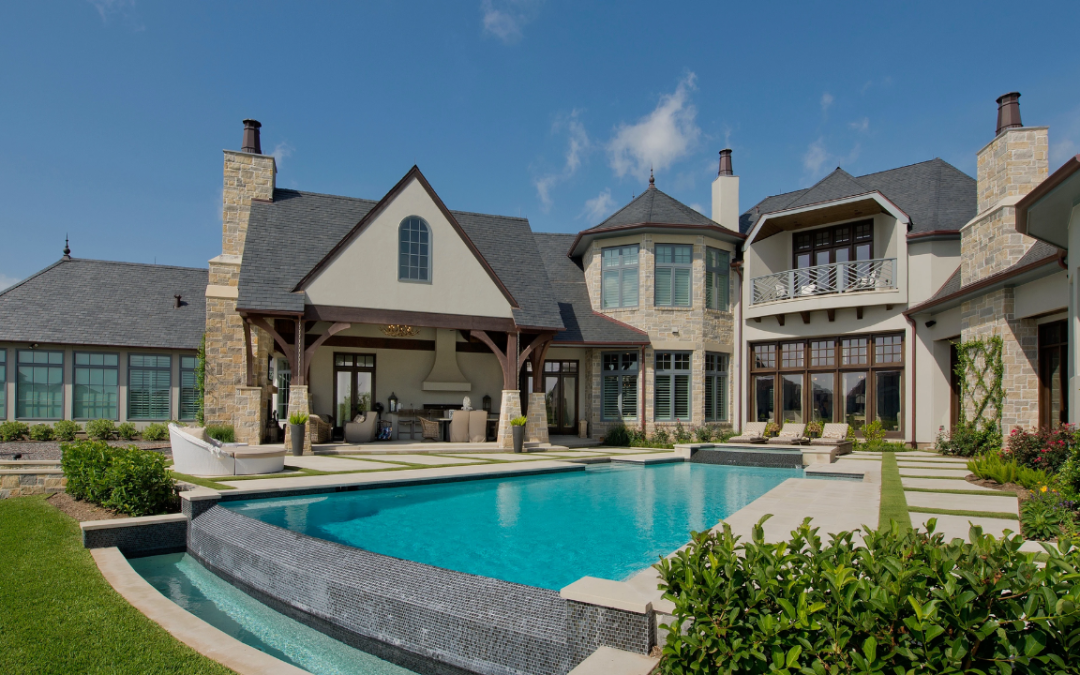
7 Commonly Used Materials in Home Construction
“Home is where the heart is’.’ Certain elements need to be utilized to make the building stand erect. It is generally accepted that the selection of materials and their quality can largely determine the characteristics of a home, such as durability, beauty, and energy efficiency. In this blog, seven common materials used for home construction are introduced, both traditional and eco-friendly. Reading about the different types of building materials will guide you in choosing what is right for your next construction project.
Types of Building Materials Used in Home Construction
Building materials are generally classified into two origins: natural and man-made. Both must be created or treated before they can be used in construction. Here is a list of materials used in building construction:
1. Wood: A Classic Choice for Framing and Finishes
Wood is probably one of the most accessible and the most global construction materials that are used in homes. It is mainly used in framing, flooring, and even in cabinetry construction.
Benefits of Wood
- Sustainability: In the case of well-managed and controlled resources, wood is one of the fantastic materials that can be used in construction.
- Insulation: Wood exhibits the best thermal conductivity and keeps the temperature inside the home stable.
- Aesthetic Appeal: It can create coziness and personality in any space.
Considerations
- Maintenance: If wood is not preserved, it can easily rot, get infested with pests, and catch fire.
- Cost: Good-quality wood is relatively expensive; obtaining it for custom builds can be especially costly.
2. Brick: Timeless and Durable
Brick is a classic building material that has been widely used for centuries. Despite being primarily used on walls, brick can be a great insulating and soundproofing material.
Benefits of Brick
- Longevity: Buildings made from brick typically last for decades with very little wear and tear and possibly require very little remodeling.
- Energy Efficiency: It plays a huge role in regulating the internal temperature of the building through thermal mass.
- Fire Resistance: Brick cannot burn, which means its use in a home will help bring an extra level of safety.
Considerations
- Cost: Using bricks can be cheap but quality bricks can prove to be expensive.
- Labor-Intensive: Brick laying involves the use of human skills and this can be costly in terms of construction expenses.
3. Concrete: Strength and Versatility
Concrete is one of the most popular building materials of the modern age. This type is mostly applied in development construction, such as the laying of foundations, walls, and even driveways, because of its high strength.
Benefits of Concrete
- Strength: Concrete can withstand various weather conditions and it has the capacity of handling very many people or things at a certain given time.
- Versatility: It can be shaped into various shapes and varieties of texture, and this makes it have design versatility.
- Low Maintenance: After it is set, concrete does not need much maintenance as compared to what one would have to do when using other materials.
Considerations
- Environmental Impact: Of all the building materials, concrete production contributes to a large extent to carbon emissions.
- Insulation: concrete can not be as friendly to energy efficiency as it might appear unless used in conjunction with insulation.
4. Steel: Strength Meets Modern Design
Steel has rapidly become the preferred material of choice in home construction, especially in commercial and industrial structures. Due to the properties of its materials, it is well-suited for construction of structural frameworks. Home builders Marble Falls TX can provide expert insight into using steel for both residential and commercial projects.
Benefits of Steel
- Durability: It does not bend easily, does not crack and it cannot be easily infested by insects.
- Design Flexibility: It enhances possibilities for designing structures that lack load-bearing walls, and large-open spaces.
- Recyclability: Steel is reusable in its highest capacity; therefore, steel qualifies as an environmentally friendly product.
Considerations
- Cost: Steel can be very costly right from the beginning compared to other materials that are in the market.
- Thermal Conductivity: Steel has heat conductivity characteristics that may call for supplementary insulation.
5. Stone: Natural Elegance and Longevity
Natural stone used in construction is famous for its elegant appearance and sturdiness. Used to construct foundations and walls, and as enhancement structures, stones bring a rather special touch to homes.
Benefits of Stone
- Durability: Weatherwise and about pests, the stone is very hardy.
- Aesthetic Appeal: The stones are unique, which gives them a customized look.
- Low Maintenance: Stone demands very little attention once it has been installed.
Considerations
- Cost: Natural stone is rather costly, as well as might only be installed by certain professionals.
- Weight: It could be a little hefty, which may need extra support in terms of structural framework.
6. Glass: A Modern Touch
Glass is common these days to be used as windows, walls, and even some brands of floors. From the above-explained concept, it improves natural lighting and gives the building a fashionable look.
Benefits of Glass
- Natural Light: There is a lot of natural light coming through the glass, so less artificial lighting is needed.
- Aesthetic Appeal: It gives a spacious ambiance to a house.
- Energy Efficiency: With the advanced kinds of glasses today, the problem of insulation can be addressed.
Considerations
- Privacy: Glass may not offer some of the privacy desirable by homeowners.
- Cost: It has been found that high-performance glass comes at a price.
7. Sustainable Building Materials: A Growing Trend
Through the years, the concern about the environment has gone up and several builders are using green materials. Such materials can be recycled products, free from harm to the natural environment products, and products made from renewable resources.
Types of Sustainable Building Materials
- Bamboo: A rapidly renewable resource that is also very strong and has a range of uses.
- Recycled Steel: Scrap steel can be used because it saves resources and prevents any waste from being produced.
- Reclaimed Wood: Using wood from old buildings has a character of its own apart from the fact that it helps to conserve the environment.
Benefits of Sustainable Materials
- Reduced Environmental Impact: These materials can be used to reduce carbon footprints.
- Energy Efficiency: Most sustainable materials outperform traditional construction materials in terms of insulation
- Healthier Living Spaces: The use of low-VOC (Volatile Organic Compounds) helps improve indoor air quality.
Considerations
- Availability: Sustainability requires sourcing products that might be precise to find in the market since they are unique.
- Cost: As far as price goes, there are often options where sustainable goods are priced a little higher than their counterparts.
Conclusion: Making Informed Choices
Choosing the right material for your home construction is important regarding its durability, energy efficiency, and its look. It will also assist you in making informed decisions in determining what type of material to use in the building depending on your needs as you appreciate the strengths and weaknesses of different types of building materials. When it comes to selecting these materials, you can stick to the central, more well-known forms of construction materials, such as wood and bricks, or, on the other hand, can go for the more contemporary and environmentally friendly forms of construction materials.
In this way, when deciding on certain types of sustainable building materials and their effects, you can help to enhance the quality of both your own living space and the environment we inhabit. In choosing the right materials for your home, you’re not just building a structure; you’re creating a sanctuary that reflects your values and lifestyle. At Christopher Custom Home, we’re here to help you navigate the options and find the perfect materials for your vision. Let’s build something beautiful together!
